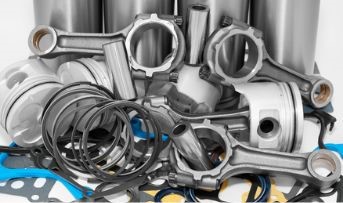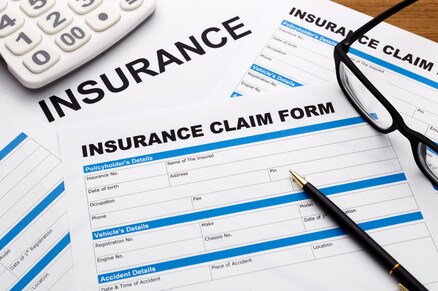General Insurance Blogs, Articles & Updates by - Magma HDI
Have us call you
- RENEW YOUR POLICY
- BUY NEW POLICY

Here are a few hacks to beat late-night snack cravings
How often have you heard someone advise you to brush your teeth to stop late-night cravings? Brushing your teeth will magically make you feel full and prevent you from wanting to eat something that will stain your sparkling whites. Although some people find this hypothesis true, it isn't true for everyone, especially if someone has bizarre cravings in the middle of the night.
Here are some tips for overcoming late-night cravings that can help you avoid having extreme cravings in the future.
1. Have good sleeping habits:
Although you may not be familiar with the term "sleep hygiene," it is crucial for getting a decent night's rest. Because of the numerous studies linking sleep deprivation to lowered metabolic function, hormonal abnormalities, and increased appetite, sleep plays a crucial role in increasing late-night cravings.
You'll have a better chance of getting a good night's sleep if you make your bedroom a calm, cosy place to sleep rather than staying up late yearning for junk food.
2. Eat a healthy breakfast:
A whole grain bagel or oatmeal are excellent first-step carbohydrates since they contain a lot of fibre. You'll feel full and satisfied for longer periods if you eat a breakfast rich in these nutrients. Preparing a few items in advance can be useful if you have a habit of rushing out the door in the morning to ensure you have a satisfying meal to start the day.
For meals to be enjoyed throughout the week, you may try eating hard-boiled eggs, baked oatmeal, overnight oats, or even a few veggies and nuts. These beneficial breakfast routines can help you stay full throughout the day and avoid late-night cravings.
3. Try something else:
According to research, cravings are nearly psychological and not physical needs. Although you don't need to eat, this does not mean that you should disregard it. The research also states that willpower is like a muscle that weakens throughout the day and becomes almost non-existent at night. Create a distraction to take your thoughts away from food. You can try chewing peppermint gum, as the studies suggest that menthol odours reduce hunger.
4. Enjoy a delicious supper:
Your body will feel satisfied and full for several hours after dinner with protein, healthy fats, and complex carbohydrates. This will likely stop any late-night cravings you have.
5. Take warm liquids:
When you're rushing around making supper and getting the kids ready for bed, it's easy to confuse thirst for hunger and to forget to drink enough water. Try a cup of herbal tea without caffeine or warm water with lemon if you're still hungry after supper. These naturally calorie-free fluids are hydrating while also making you feel full.
6. Exercise your brain:
Put a mental barrier between yourself and the craving. Stop and give yourself a pep talk to control your emotions. As you picture "moving away" from your hunger, tell yourself that it is "only an idea."
7. Portion out your snack if you're hungry:
You've done everything you can to avoid feeling ravenously hungry at the end of the day, including eating filling meals, getting enough sleep, and paying attention to your body. This can occur occasionally! If it is late and you are still hungry, don't be too hard on yourself. Do yourself a favour and divide whatever you intend to eat. You may even try healthy snack suggestions if you want to feel satiated rather than hungry after eating.
These tips guide you to avoid disturbing your sound sleep due to the constant urge to eat something at night. Bring these tips into practice and adopt a healthy routine with lower bloating risks.
Also, consider investing in health insurance to keep yourself mentally and financially strong during medical emergencies. An all-inclusive health insurance plan will pay for hospitalisation, childcare operations, medical care received at home (domiciliary hospitalisation), and ambulance fees, among other things. Buy yours today without any delay!
Click HERE to buy health insurance for you and your family.
Disclaimer: The information provided above is for illustrative purposes only. To get more details, please refer to policy wordings and prospectus before purchasing a policy.

What characteristics or ways are helpful in spotting fake spare parts
Repair and service of your vehicle can be daunting and more challenging if the damage is so severe that some parts might need replacement. But, the introduction of fake spare parts for automobiles is posing a threat to the longevity of the vehicles and depreciating their value over time. Recognising a fake spare component is challenging because the phoney industry is evolving quickly.
Companies are striving to enact severe punishments against the manufacturers of these counterfeit parts. Still, there is a large part that you might encounter. How can you distinguish a fake from a real one? The characteristics listed in this article can help you identify genuine or bogus spare parts.
1. Check the serial number and hologram: A specific serial number is linked to all OEM/OES authentic auto spare parts. It will be helpful to trace a piece back to its source, allowing the part's authenticity to be confirmed. In India, you can also find a unique hologram of the company that makes the auto parts, which makes them impossible to replace.
2. QR code:
Most spare parts have a QR code that a smartphone may read to verify that the part is authentic. This unique QR code helps maintain product tracking and get all the required details about that part right from its manufacturer, the manufacturing date, model number, and more.
3. Check brake pads:
These are crucial components of a car's brake system. A false brake pad typically deteriorates quickly and unevenly. Also, fake brake pads can quickly fall apart because the materials used are of poor quality and have less resistance factor. These bogus brake pads wear out too soon, causing the brakes to fail.
4. Electricity risks:
Electrical component failure is a significant cause of car fires. And when they are examined, it is typically discovered that these automobiles have electrical parts that are phony or counterfeit. Such components may be dangerous since they may not comply with industry standards and might turn risky due to the chances of a blowout at any time.
5. Uncommon packaging:
It is important to understand the packaging of parts before purchasing them. Stay alert regarding the regular packaging of that part and the one you receive. Fake parts are delivered in unusual packaging and boxes. You must be able to differentiate between them and look out for company branding, the model number, and other essential information imprinted on the auto part. Call the dealer immediately if you feel something fishy.
6. Huge price differences:
Finding a deal is one thing, but if you notice parts being offered at an outrageous discount, like 90%, there is a very strong likelihood that they are fakes. Always do a price comparison, ensuring you get the original product.
7. Always visit an authentic and authorised centre:
It is advised to visit only the company-authorised centres to purchase genuine spare parts. These centres are approved by that particular vehicle brand and get an exclusive dealership to provide genuine products and the best customer service. Also, you can always connect to the centre if you face any problem with the part. Don't forget to get the bill and other important documents like the warranty card, user manual, and more.
You are responsible for informing the manufacturer once you discover that spare parts are fake. The body that considers these complaints will take appropriate action against the seller. They take the counterfeit parts and ensure they don't reappear on the market.
Additionally, ignore anyone trying to sell you fraudulent parts by claiming they are identical and will save you money. This little bit of money you might be able to save right now could lead to something dangerous. Good quality and original spare parts will help you increase the life of your vehicle. Take your car to regular servicing, do proper maintenance, and buy the best car insurance in India to keep it in the best shape.
Click HERE to buy the best car insurance in India.
Disclaimer: The information provided above is for illustrative purposes only. To get more details, please refer to policy wordings and prospectus before purchasing a policy.

Here are a few clever ways you can avoid overspending on food when travelling
Travel is a favourite bucket list item for most people who aspire to discover new opportunities, savour offbeat experiences, introspect and grow holistically. With general insurance covering the financial burden of accidents that may happen while travelling, it has become easier and safer to travel than ever before.
Despite the ease of travel, most people end up postponing plans indefinitely or even cancelling due to budgeting issues. Overspending while travelling can have a significant impact on your finances. However, pinching every penny ruins the joy of the experience. Therefore, it is essential to find a balance, make careful estimates, and use tricks that save money on regular activities.
Food is one such expense that adds to the joy of travel. However, it is easy to overspend on food while travelling. Here are some smart ways that can help you save on food.
1. Complimentary breakfasts:
Usually, breakfast is included in the cost of the room. It is an overlooked service that can save you a sizable sum throughout your stay. Most hotels provide good-quality breakfast spreads that give you a taste of the local cuisine and international foods.
2. All-you-can-eat buffets:
These buffets can save you a lot of money if you travel with large groups or have a voracious appetite. Instead of purchasing individual menu items in fancy restaurants, it is significantly cheaper to head to a buffet restaurant that specialises in a specific food type- meat, pasta, or pizza, for example. These restaurants can be easily found by a quick internet search.
3. Avoid tourist-catered restaurants:
Tourists often travel without prior research and pay exorbitant rates for items sold at prime locations. An example is the restaurants in tourist-centric areas like the city centre or nearby tourist attractions. These restaurants charge high prices and exploit tourists who don't know the actual cost. It is best to avoid such centrally located restaurants and instead research and find local restaurants to get a taste of authentic cuisine at reasonable prices.
4. Stash your snacks:
Have you ever experienced hunger outdoors without having a snack prepared, and the only available options are overpriced foods you would not otherwise purchase? Imagine that in a foreign place where you end up paying heavily.
In desperate times, we purchase unnecessary things at unreasonable prices that do not truly satisfy our needs. To avoid this, carry a few snacks with you. This helps tide over time between two activities and prevents you from wasting money on overpriced snacks.
5. Allocate one meal a day for dine-out:
It is tempting to dine out for all meals while on vacation. However, this leaves a massive dent in your wallet. The easiest way to overcome this obstacle is to define a meal to eat at a local restaurant each day. Preferably, this should be lunch to get the most value for your money. Complimentary breakfasts and grocery stores or cooking for dinner make it easy to follow this rule.
6. Opt to cook:
If you're booked into a hostel, or your hotel room provides the equipment you can use to cook, ensure that you make full use of them. This can help in cutting down food expenses substantially. In case neither of these options is available to you, choose to purchase freshly prepared sandwiches or similar quick fixes from grocery stores or local bakeries.
Ensure that the food is safe to eat by thoroughly checking the expiry dates to prevent any issues that may lead to illnesses, irrespective of whether or not your travel is covered under your general insurance.
With some planning and research, you can limit your food expenses without adversely affecting your travel experience and preventing you from travelling. Think like a local, and you can significantly reduce expenses. However, you must pay attention to purchasing comprehensive general insurance covering accidents while travelling.
Click HERE to buy the best general insurance policy before your next trip.
Disclaimer: The information provided above is for illustrative purposes only. To get more details, please refer to policy wordings and prospectus before purchasing a policy.

Learn About the Insurance Claims Process
Let’s address the big question, how to go about a claim?
The information on this page covers the part that you're most concerned about: Claims.
Our claim settlement ratio is something we're really proud of. Trust us, we are equally eager to settle your claims, should there be an untoward situation. Call us on 1800 266 3202 for seamless claim support.
Some important points related to the claims process:
For motor insurance claims, you can send us a video of the damaged vehicle taken from your smartphone, through the link that we share on your registered mobile number. You can also get in touch with your agent, visit our nearest branch or email us at customercare@magma-hdi.co.in for speedy assistance.
We promise you – we'll never leave you stranded. Our 24*7 Roadside Assistance add-on will help you with vehicle pick-up, repairs, and several other services (only if this service is opted for). For repairs, we urge you to choose our preferred workshops / network garages (where we'll settle the bill directly with the garage) or even if you don't, we'll settle the payment based on the relevant invoices and documentation (if only it is admissible under the terms of the policy).
To check the preferred garages near you, please click
For health insurance claims, in case of planned admission, we request you to inform us or your agent before the hospitalization, this will help us to process your claims quickly. Kindly intimate your claim within 30 days of hospitalization. You can avail yourself of the cashless facility at any of our Network hospitals.
To check the network hospitals near you, please click
You can also download our "Magma HDI" mobile app from the Google play store or Apple app store or visit our website www.magmahdi.com for the following services:
1. Intimate and track claims
2. Avail wellness services
3. Download claim forms
4. Search hospital for a cashless
5. Access your policy facility features and health card, and more
For more clarity, we have summarized a few points to know why health claims get rejected, click here to view our blog.
We've reached the end of this page. See how quick that was!
To register your claim, click


